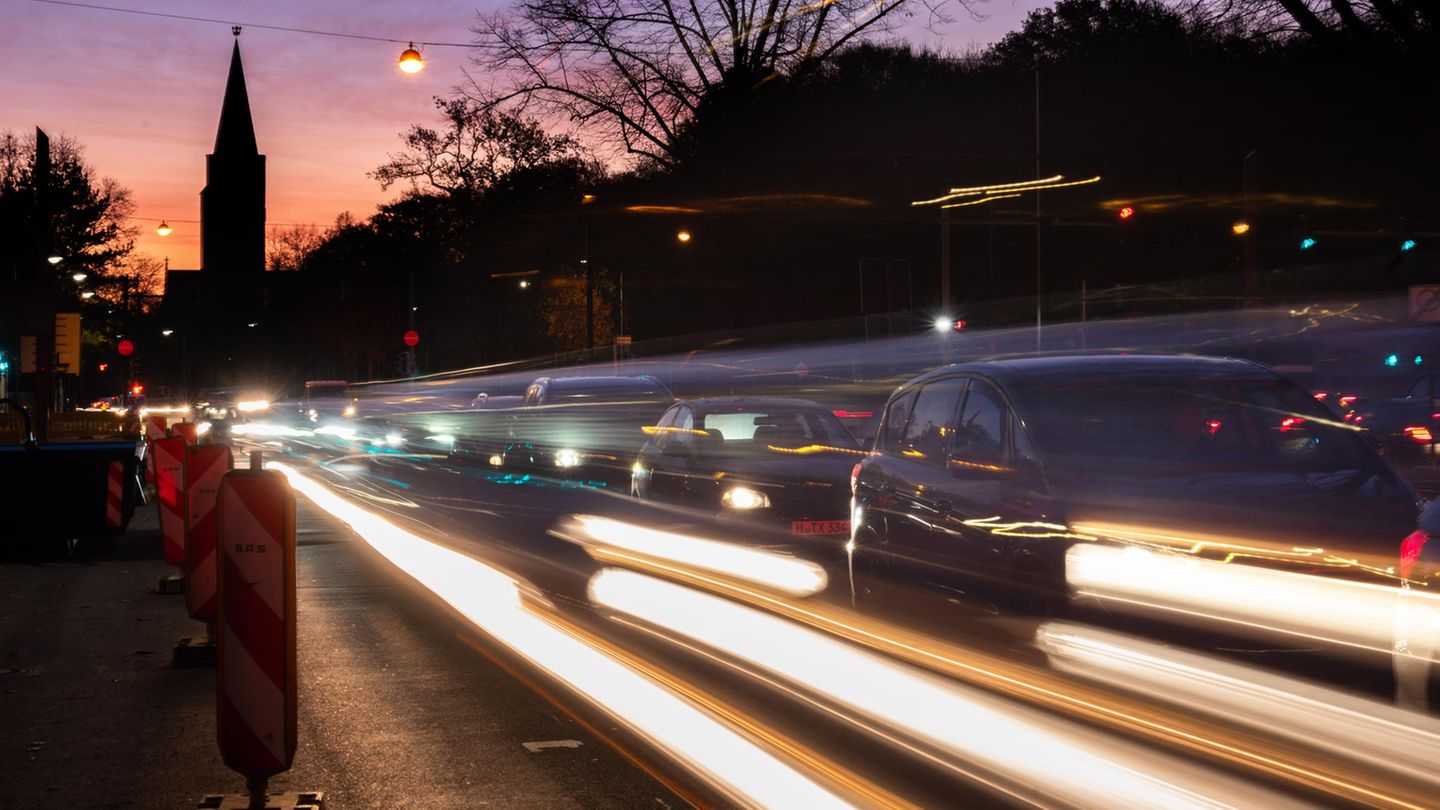Germany’s climate protection could have been cheaper and fairer. This is the result of a study with which scientists want to force a stricter climate policy.
According to a Greenpeace study, a lack of climate protection in the transport sector could make “drastic” measures necessary in the future. “If the federal government continues to postpone climate protection measures in transport, severe cuts, including driving bans, could be threatened as early as the 2030s,” the environmental protection organization said on Thursday in Hamburg. It called on politicians to react in order to achieve the goal of climate neutrality by 2045.
The federal government cannot afford to waste any more time, especially in the transport sector. “Every ton of CO2 saved today makes the transition a little easier and fairer tomorrow,” explained Marissa Reiserer of Greenpeace.
Advancing climate change requires more drastic measures
The study by the New Climate Institute on behalf of Greenpeace and Germanwatch compares three scenarios. In the first scenario, the study authors assume that measures such as the introduction of a speed limit or the reduction of climate-damaging subsidies would have been introduced as early as 2021 and that the CO2 price would have increased evenly and moderately. According to Greenpeace, this would have been enough to reduce CO2 emissions by 9.8 million tons per year between 2030 and 2035.
In the second scenario, in which the measures are introduced immediately, emissions would have to fall somewhat faster – by 10.3 million tonnes per year. For this to happen, two to 2.5 million electric cars would have to be registered each year to replace combustion engines on the road. In addition, the CO2 price would have to rise rapidly to a high level.
In the scenario with delayed measures not implemented until 2030, emissions would have to fall by 18.2 million tons per year. “This would require an unrealistically high number of five million newly registered electric cars per year, replacing just as many combustion engines,” the environmentalists explained. The CO2 price would also rise dramatically, which would particularly affect socially disadvantaged groups and would be “similar to a driving ban.”
Study aims to support constitutional complaint against climate policy
“Only if further climate protection measures are taken immediately in transport can the agreed CO2 targets be achieved in an organic transformation,” explained Hanna Fekete, co-author of the study.
According to Greenpeace, the study is intended to provide scientific support for a constitutional complaint that the organization plans to file together with Germanwatch in Karlsruhe next Monday. The organizations want to use this to take action against the federal government’s climate policy.
Source: Stern
I have been working in the news industry for over 6 years, first as a reporter and now as an editor. I have covered politics extensively, and my work has appeared in major newspapers and online news outlets around the world. In addition to my writing, I also contribute regularly to 24 Hours World.




